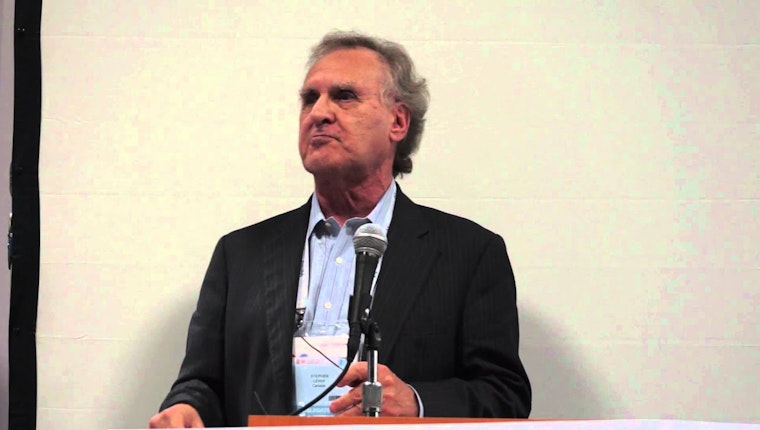Absence of Mind: Drug Policy and the 2012 International AIDS Conference
By Joanne Csete & Karolina Walecik

The biennial, large and expensive international AIDS conferences run by the International AIDS Society (IAS), a professional membership organization based in Geneva, are in theory an occasion for taking stock of the state of the struggle against the epidemic. With the distance of a month since the end of the 2012 iteration of the conference, we can assess the conference’s missed opportunity to shed light on the complex reality of drug policy as part of the global challenge of AIDS.
The 2012 AIDS conference took place in Washington, DC, a “reward” to the US for removing immigration restrictions on people living with HIV. As already noted in this space by Jonathan Cohen of the OSF Public Health Program, the IAS might have done well to consider that in spite of this positive development in immigration policy, the entry to the US of people who use illicit drugs and people in sex work was effectively barred by ill-conceived and discriminatory US policies. The injustices faced by these persons around the world are well documented impediments to access to HIV services. Not caring to ensure their participation in this global stock-taking was a mistake, and the conference was much poorer for it. Compounding this error, the program of the conference somehow, for reasons that are unclear, featured very little drug policy research.
These gaps were compensated for to some degree by the harm reduction and drug policy “networking zone” in the Global Village – a display and events area of the conference that admitted people who hadn’t paid the exorbitant conference registration fee. The drugs networking zone, well managed by the Harm Reduction Coalition, was animated by energetic panel presentations and other events, and between events by informative films, many by the intrepid Drug Reporter Project of the Hungarian Civil Liberties Union.
An electrifying moment in the networking zone came when Stephen Lewis, the former UN Special Envoy for HIV/AIDS in Africa, addressed an overflow crowd on drug-related advocacy priorities. Lewis raised many of the issues that should have figured prominently in the program of the conference. He cautioned first that the US government’s upcoming “blueprint for an AIDS-free generation” – a centrepiece of the conference speech by US Secretary of State Hilary Clinton, set to be launched in December – is likely to exclude key drug policy concerns unless there is concerted pressure to include them.
Lewis went on to urge attention to a number of concrete actions at the intersection of drug policy and HIV, including exposing the secretive work of the International Narcotics Control Board in its continuing defence of unsound policies; engaging friendly UN member states to bring key drug issues to UN bodies too long on the sidelines; and ensuring that the Global Fund to Fight AIDS, Tuberculosis and Malaria does not lose its way on drug-related funding.
The AIDS conference saw the announcement of the appointment of Dr Michel Kazatchkine as UN Special Envoy for HIV/AIDS in Eastern Europe and Central Asia. Dr Kazatchkine, the former executive director of the Global Fund and a member of the Global Commission on Drug Policy, has been a tireless advocate for scientifically sound drug policy and harm reduction services. He gave a rousing speech to a pre-conference event on drugs and harm reduction, characterizing current drug policies as a “war on vulnerable people” and calling for international leadership for new directions in drug policy.
People who use drugs from around the world who were unable to be present physically nonetheless had a strong presence through personal testimonials filmed at the pre-conference event “Ensuring our Voices are Heard” in Kiev. These short films were shown in a number of key sessions of the conference and moved people by their courage and frankness. The Kiev event was co-organized by GDPP grantee the Eurasian Harm Reduction Network and the International HIV/AIDS Alliance in Ukraine.
The single session in the formal conference program that focused explicitly on drug policy and human rights featured GDPP staff and colleagues. Joanne Csete presented work on barriers to and opportunities for effective drug policy in four African countries (see slides from that presentation [link]). Dr Hakima Himmich of the NGO ALCS in Morocco presented the result of a GDPP-funded survey of drug users in her country, noting the need for policies conducive to providing life-saving services to this population.
As Stephen Lewis said, it is time in global forums like the AIDS conference for drug policy to escape its “cloistered seclusion” and be brought into “the light of day where people’s lives can be saved and supported”. This won’t happen as long as people who use drugs face high barriers to entering the discussion.
Joanne Csete is a researcher for the Open Society Public Health Program and Global Drug Policy Program.
Until August 2014, Karolina Walecik was a program officer with the Open Society Global Drug Policy Program.